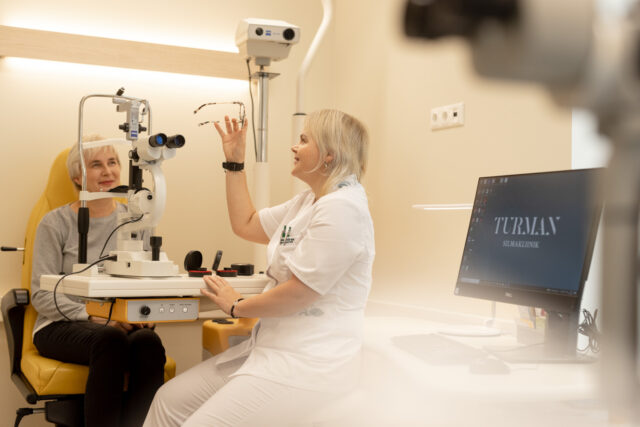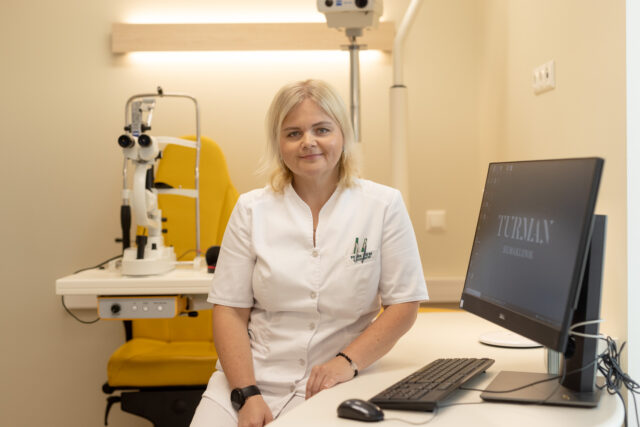Info and registration 655 6244 Open Mon 8.00–16.00 Tues.–Thurs. 8.00–18.00 Fri 8.00–16.00
Info and registration 655 6244 Open Mon 8.00–16.00 Tues.–Thurs. 8.00–18.00 Fri 8.00–16.00
The work of an ophthalmologist and an optometrist has the same goal – to grant you a better vision. However, the two specialists differ in terms of both training and experience.
Optometrists are not doctors (meaning, they do not have an MD). In Estonia, optometrists receive applied higher education at Tallinn Health Care College.
The main tasks of an optometrist are:
You have likely seen optometrists working in eyewear stores, where their main job is to prescribe glasses and contact lenses. In our clinic, optometrists work alongside ophthalmologists, who, in addition to everything related to glasses, also perform eye examinations. Of course, additional training and practice with doctors is a prerequisite for such work. These optometrists are increasingly becoming real, important assistants to ophthalmologists.


If you want to examine your vision, the optometrist can determine your visual acuity and prescribe glasses if necessary. They can measure intraocular pressure, take photographs of the ocular fundus, and perform an OCT-scan to assess the layers of the fundus.
An optometrist with sufficient knowledge and experience can assess whether and how quickly you should see an ophthalmologist. The optometrist does not cure, but their job is to understand whether your concern is just an optical system problem that can be corrected with glasses or contact lenses, or if there is a further problem with the eyes.
A person who wears glasses regularly should ideally visit the optometrist once a year, but it is mandatory to do a check-up every two years. Visiting an optometrist does not necessarily mean that you will leave with a prescription. However, it is good to know the state of the health of your eyes and how to take care of them.
Eyes, which are strained by the constant viewing of a digital screen, as well as in air-conditioned and underfloor-heated rooms with dry air, definitely need care. The optometrist can also help with symptoms such as dryness and slight stinging of the eyes. Sunglasses are not only a fashionable accessory, but also a means of protecting both the eyes and the delicate skin around them. Self-darkening glasses are especially designed for light-sensitive eyes. An optometrist’s appointment will help you in choosing the suitable glasses for you.